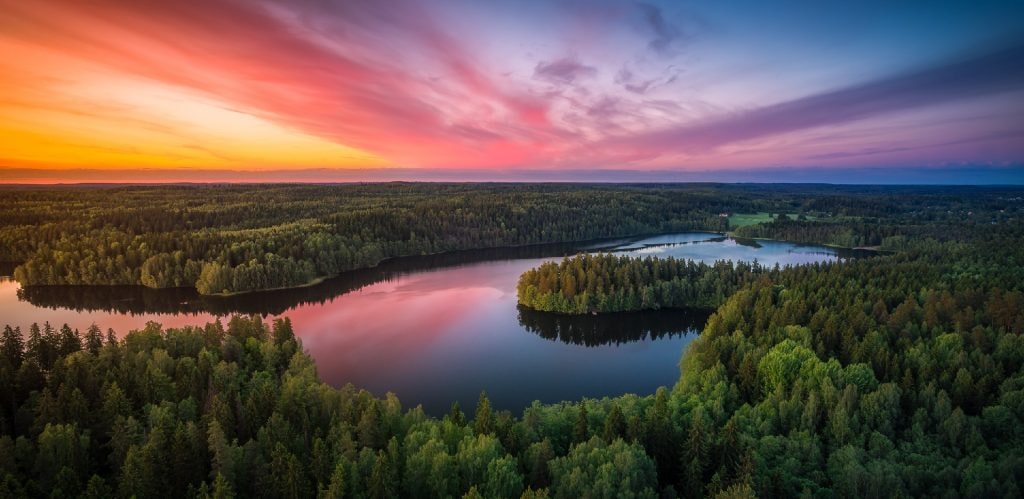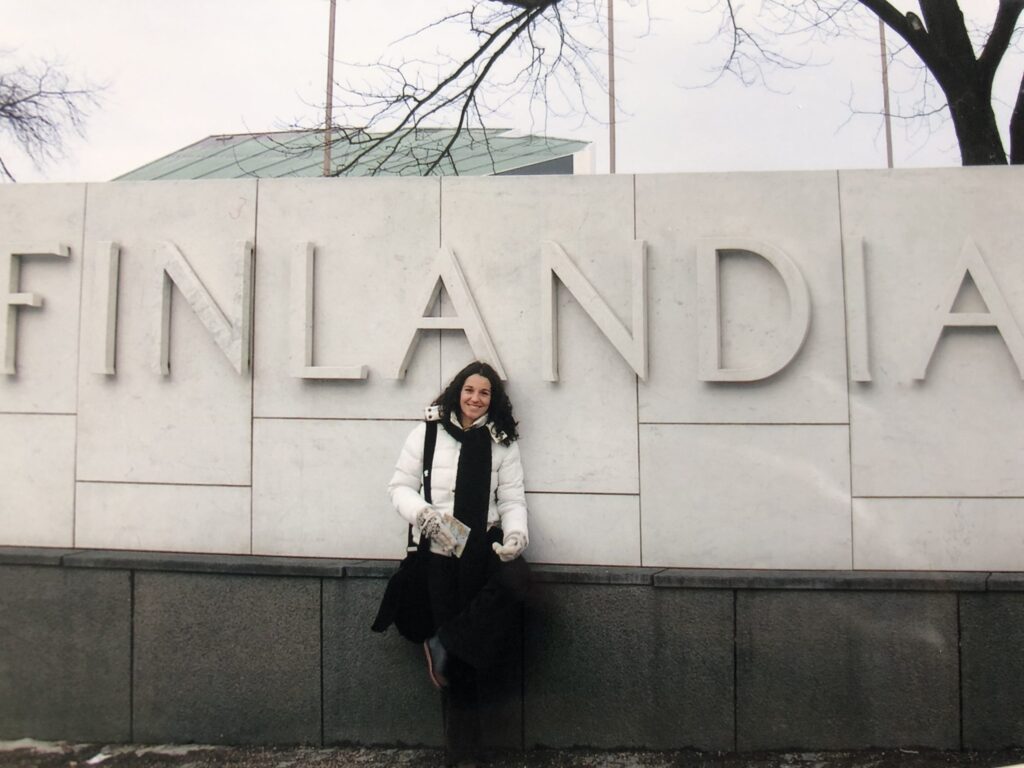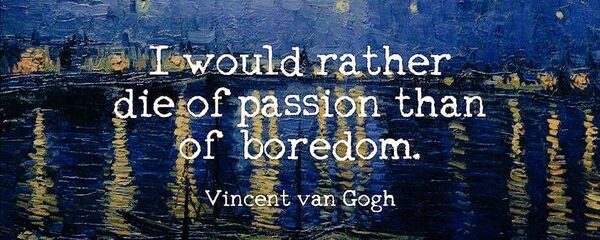
Who asks for the road doesn’t get lost. – Ei kysyvä tieltä eksy.
Emergency finds the way. – Hätä keinon keksii.
The pot blames the kettle, yet both have a black side. – Pata kattilaa soimaa, musta kylki kummallakin.
A strong will takes you through the grey stone. – Luja tahto vie läpi harmaan kiven.
Finland, officially the Republic of Finland is a Nordic country located in Northern Europe. Finland shares land borders with Sweden to the west, Russia to the east, and Norway to the north and is defined by the Gulf of Bothnia to the west and the Gulf of Finland to the south that are part of the Baltic Sea. Finland has a population of approximately 5.5 million, making it the 25th-most populous country in Europe. The main language is Finnish, a Finnic language of the Uralic language family. Swedish is the second official language of Finland, and is mainly spoken in certain coastal areas of the country and on Åland. Finland was inhabited around 9000 BC after the Last Glacial Period. The Stone Age introduced several different ceramic styles and cultures. The Bronze Age and Iron Age were characterised by extensive contacts with other cultures in Fennoscandia and the Baltic region. From the late 13th century, Finland gradually became an integral part of Sweden as a consequence of the Northern Crusades, the legacy of which is reflected in the prevalence of the Swedish language and its official status. In 1809, as a result of the Finnish War, Finland was annexed by the Russian Empire as the autonomous Grand Duchy of Finland, during which Finnish art flourished and the idea of independence began to take hold. In 1906, Finland became the first European state to grant all adult citizens the right to vote, and the first in the world to give all adult citizens the right to run for public office. Nicholas II, the last Tsar of Russian Empire, tried to russify Finland and also terminate its political autonomy, but after the 1917 Russian Revolution, Finland declared itself independent from the empire. In 1918, the fledgling state was divided by the Finnish Civil War. During World War II, Finland fought the Soviet Union in the Winter War and the Continuation War, and Nazi Germany in the Lapland War. After the wars, Finland lost part of its territory, but maintained its independence.
Helsinki
Helsinki is the capital, primate and most populous city of Finland. Located on the shore of the Gulf of Finland, it is the seat of the region of Uusimaa in southern Finland, and has a population of 656,229. Helsinki is located 80 kilometres (50 mi) north of Tallinn, Estonia, 400 km (250 mi) east of Stockholm, Sweden, and 300 km (190 mi) west of Saint Petersburg, Russia. It has close historical ties with these three cities.













